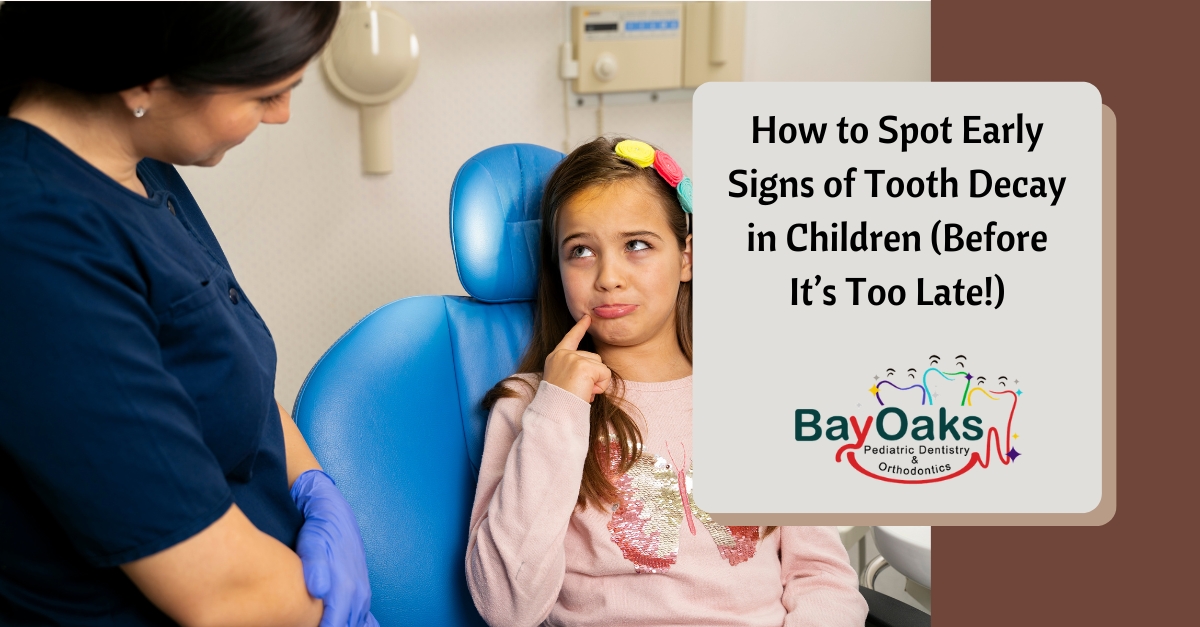
How to Spot Early Signs of Tooth Decay in Children (Before It’s Too Late!)
How to Spot Early Signs of Tooth Decay in Children (Before It’s Too Late!)
Parents, ensuring your child’s dental health must be a priority! Unfortunately, many parents fail to recognize early warning signs of tooth decay, which is one of the most common chronic conditions in children. However, parents, you can help protect your child’s teeth and overall health by knowing what to look for and taking preventive steps.
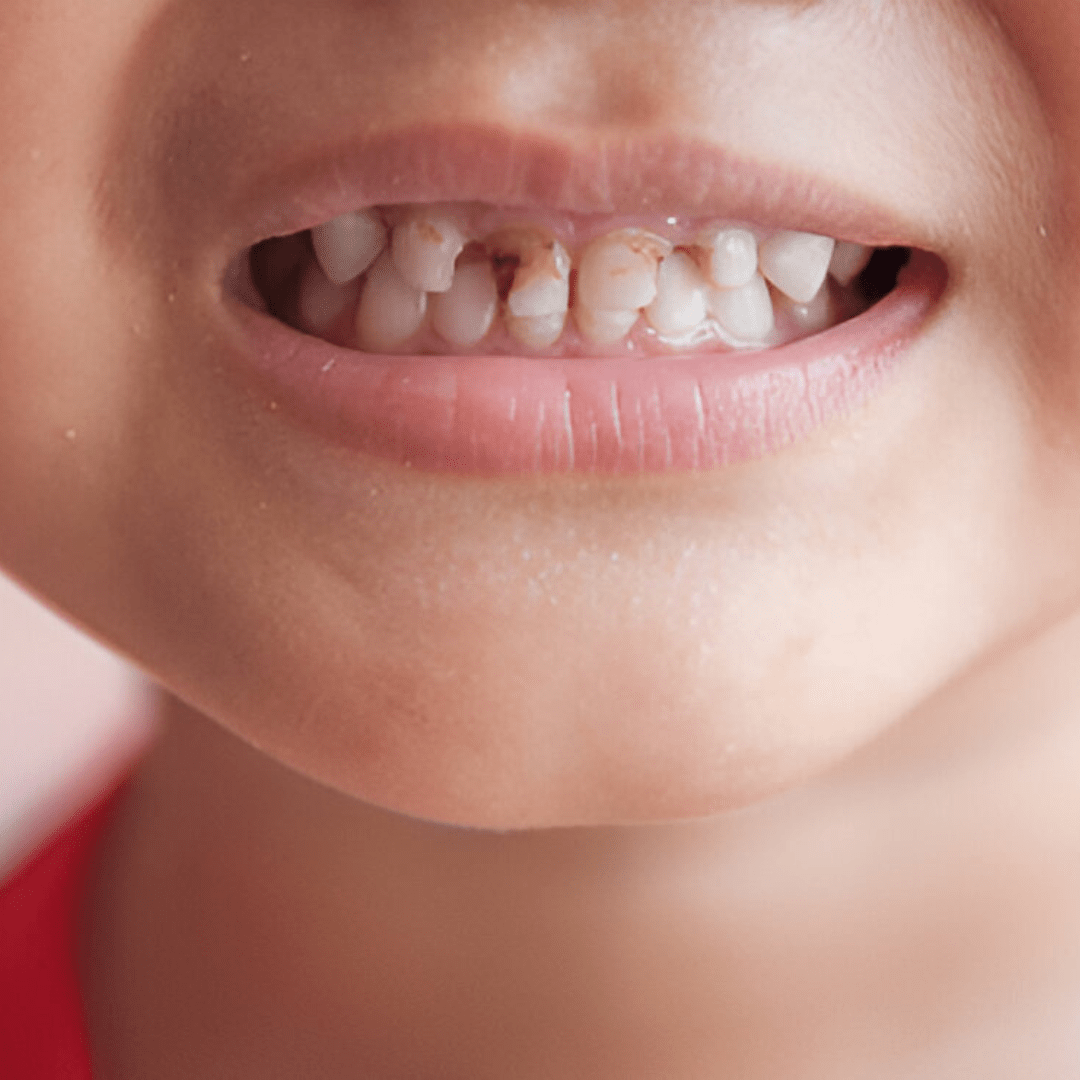
What Causes Tooth Decay in Children?

Tooth decay is caused by bacteria in the mouth that produce acids that wear away the enamel. Factors that can contribute to decay, include:
- Poor oral hygiene
- Frequent consumption of sugary snacks and drinks
- Lack of fluoride exposure
- Dry mouth or inadequate saliva production
- Genetics or underlying medical conditions
Early Signs of Tooth Decay
Major damage and consequent costly treatments can be avoided by recognizing early signs of decay.
Here are key indicators to watch for:
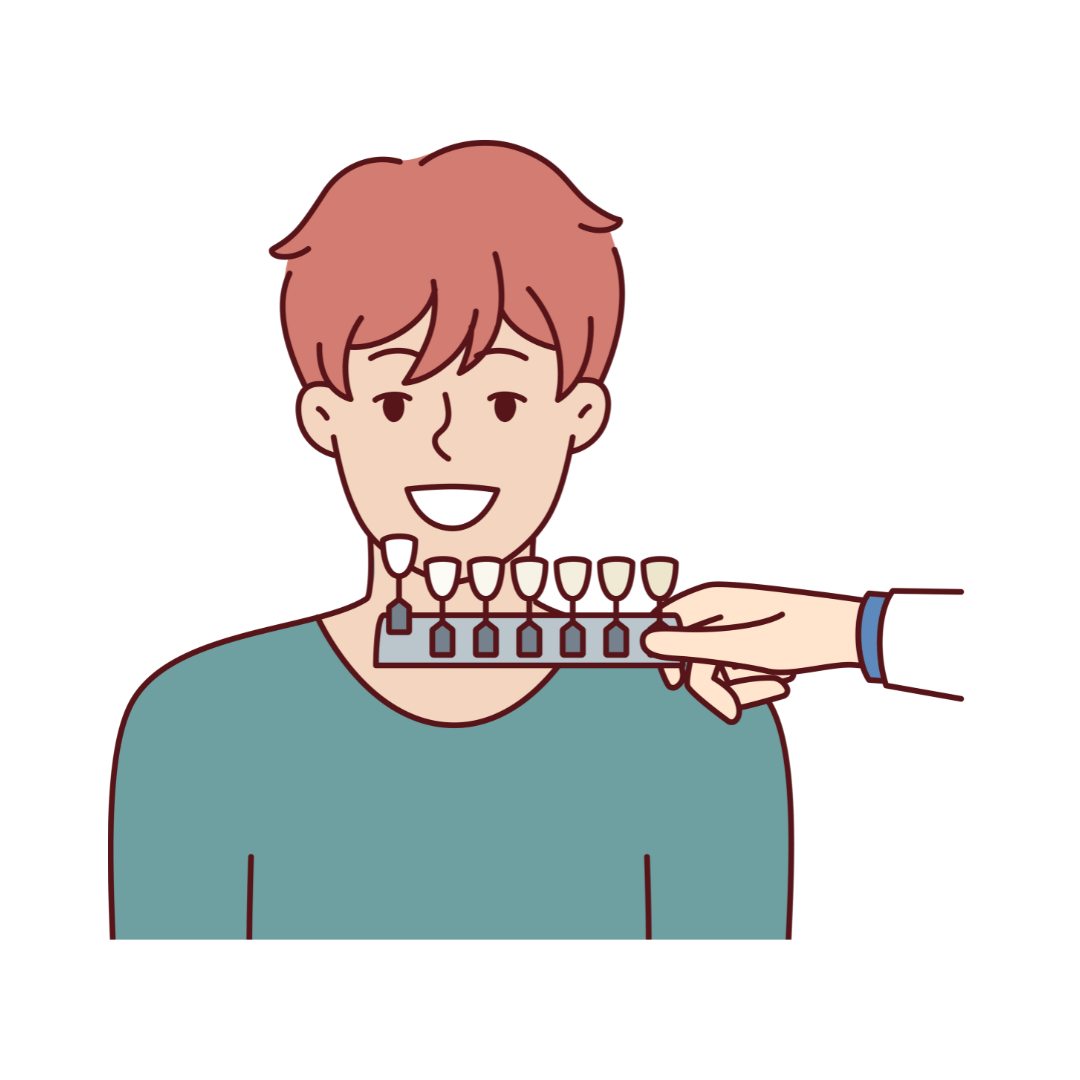
1. White Spots on the Teeth
The first signs of decay normally are white or chalky spots on the enamel. These spots indicate demineralization caused by acid attacks on the tooth surface.
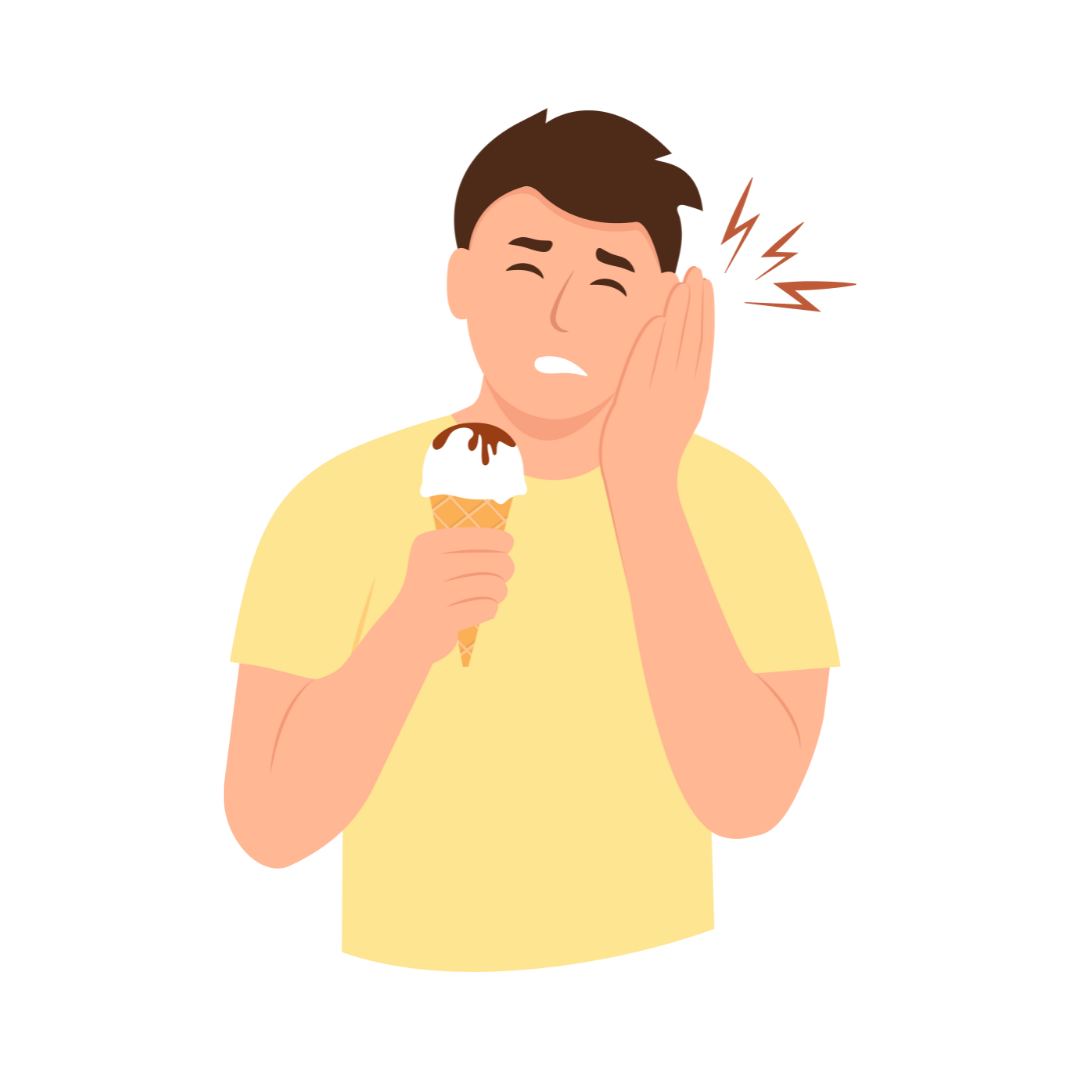
2. Sensitivity to Hot or Cold Foods
Enamel erosion and the beginning stages of decay are indicated when your child experiences discomfort while eating hot, cold or sweet foods.
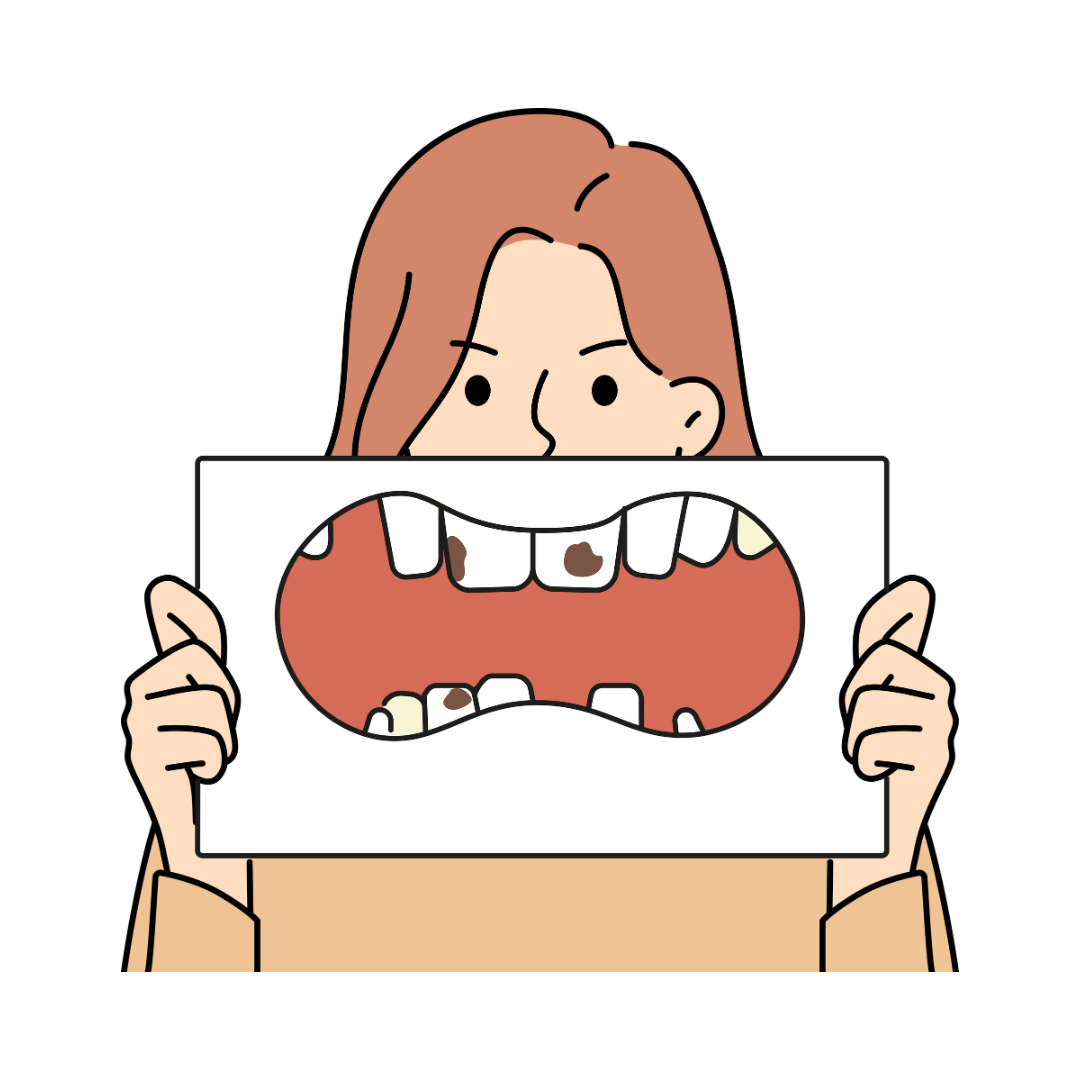
3. Discoloration or Dark Spots
When tooth enamel gets broken down and black or brown spots appear, it is a sign of advanced tooth decay in these areas.

4. Persistent Bad Breath
Persistent bad breath may indicate the presence of decay-causing bacteria in the mouth.

5. Pain or Discomfort While Chewing
Pain or discomfort while chewing or eating are clear indications that tooth decay has gone down into the dentin or pulp.
Importance of Preventive Dentistry
The risk of tooth decay in children can be reduced to a large extent by preventive dentistry. Preventive dentistry includes regular dental checkups, professional cleanings, and fluoride treatments, which can help maintain strong and healthy teeth. Pediatric dentists can teach parents about ideal dental hygiene care for their children.
How to Prevent Tooth Decay
Tooth decay is a prevalent issue, yet it is largely preventable. Here are several measures you can implement to protect your child’s dental health:

1. Establish a Regular Oral Hygiene Routine
Encourage your child to brush their teeth twice daily using fluoride toothpaste. Supervise their brushing to ensure they clean all areas of the mouth effectively. Introduce flossing as soon as their teeth begin to touch.
2. Monitor Dietary Habits and Sugar Consumption
Limit the intake of sugary snacks and beverages, particularly between meals. Choose healthier alternatives such as fruits, cheese, and nuts. Ensure your child stays hydrated by drinking plenty of water to help wash away bacteria.
3. Schedule Regular Pediatric Dental Appointments
Arrange dental checkups every six months to identify any potential issues early on. Professional cleanings are essential for removing plaque buildup and preventing decay. Inquire about dental sealants, which offer additional protection for molars.

The Role of Orthodontic Treatment in Decay Prevention
Orthodontic problems, such as misaligned teeth or overcrowding, can increase the risk of tooth decay by making it difficult to clean between teeth. Braces or other orthodontic solutions can help align teeth, enhance oral hygiene, and lower the risk of decay.
Post-Treatment Care
If your child receives treatment for tooth decay, proper aftercare is crucial to prevent future occurrences. Recommendations for maintaining oral health after treatment include:
- Adhering to the oral care routines suggested by the dentist.
- Avoiding sugary foods and drinks that may lead to further decay.
- Utilizing prescribed fluoride treatments or rinses to strengthen tooth enamel.

Special Needs Dentistry
Children with special needs may require additional dental care and support. Pediatric dentists specializing in special needs dentistry can offer tailored treatment plans and techniques to ensure a comfortable and effective dental experience.
Recognizing early signs of tooth decay in children can help avert serious dental problems and promote their long-term oral health. Key indicators to monitor include white spots, sensitivity, discoloration, and bad breath. Emphasizing preventive dentistry and maintaining good oral hygiene practices are essential.
By taking proactive steps, parents can provide their children with a lifetime of healthy smiles and prevent serious dental complications. If you’re looking for the best children’s dentist in Houston, be sure to choose a professional with experience in pediatric dentistry to ensure your child receives the best possible care.


